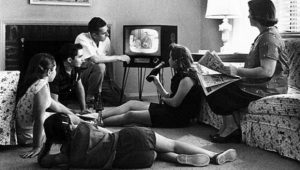- LLU Live #25: The Fetishization of Peer Review
- LLU Live #12: The rise and impact of the MFL Twitterati!
- LLU Hangout #2: Hybrid and Blended Classes
- LLU Live #3: Radio and the Language Classroom
- LLU Live #4: Making and Using Transcriptions
- LLU Hangout #5: Video Games and Language Learning: Hopeful dream, nightmare, or paradigm shift?
- LLU Live #6: Open Education Resources / Repositories for Language Teaching and Learning
- LLU Live #7: Programming as a “foreign language”
- LLU Live #8: Workflows
- LLU Live #9: International Television Programming and Language Centers
- LLU Live #10: Collaborative Writing Tools
- LLU Live #11: Google Hangouts and Helpouts for Language Learning
- LLU Live #13: What’cha reading?
- LLU Live #24: The Limits of Technology
- LLU Live #14: Web-based video chats
- LLU Live #15: Digital Micro-storytelling
- LLU Live #16: Language placement tests
- LLU Live #17: Faculty development
- LLU Live #18: Interactive Fiction
- LLU Live #19: What’s in YOUR job description? now UPDATED!
- LLU Live #20: Staff Development
- LLU Live #21: What’s NOT in your job description?
- LLU Live #22: Team and Task Management
- LLU Live #23: Open Mic!
- Starting October 3rd (tomorrow!): LLU Live
This week on LLU Live #9 we are going to talk about international television programming and the Language Center.
A bit of context: Every six months or so, I receive a request from one of the language departments asking if my center could provide a way for their language students to watch “international television channels.” As I look around my center and the 24 computers that reside there, my reply is of course, I would be happy to share with them ways for their students to watch TV broadcasts being live-streamed over the internet. But that doesn’t always fill the bill.
Unpacking the request a bit further, there seem to be two requests rolled into one: the first is a request is to create a way for students to come to our center and watch a wide variety of authentic television programming in the languages they are studying on a recreational basis. The second request is a way for faculty to capture those broadcasts so they can be repurposed for language teaching (exercises in class, review, etc).
Thursday, December 5th at 4 p.m. EST we will be talking about international television programming and learning centers. Do you have a set-up in your facility? If so, what did you choose and why? How are students using it? How are faculty using it? Are there (reliable? economical?) alternatives to plunking parabolas on the roof?
Interested in joining in? Here’s how! These get togethers are informal, conversational and usually are over in about 30 minutes. Everyone is welcome!
In the interim, you might want to read this article (and the source of the picture for this post) on The Evolving Definition of Television. It does a great job of summarizing the two strands of conversations I find myself having about TV here: for some of my constituents, television is an appliance that provides content, for others it is a type of content that is not at all appliance-dependent.
Hope to see you Thursday!
UPDATE: Here is the video! Complete with Maximus the Bulldog! Please add your comments or questions in the comment section!
